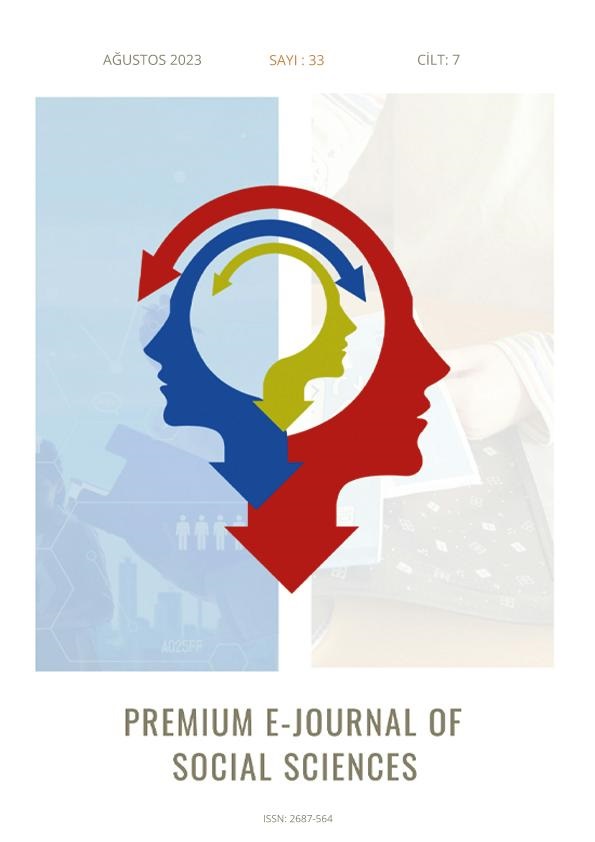Teachers’ Qualifications Regarding Out-of-School Learning
DOI:
https://doi.org/10.5281/zenodo.8255936Keywords:
Education, Out of School Learning, İnformal Learning, Competence, STEMAbstract
Out-of-school learning environments are learning environments that students can benefit from in line with a previously prepared plan and program within the framework of formal education within the education-training program, as well as being a learning environment that individuals who go out of formal education can visit at any time without being bound by a plan or program. Contrary to popular belief, out-of-school learning environments do not consist of science centers, museums, botanical gardens and zoos. STEM laboratories used in technology, engineering, science and mathematics, mosques, aquariums, virtual reality environments, ruins, national parks, churches, inns, caravanserais, ancient cities, excavation sites, government mansions, municipal buildings, cultural centers, agricultural lands and similar Many places can be considered as out-of-school learning environments. In summary, every place where education-teaching activities are implemented and permanent learning takes place can be expressed as an out-of-school learning environment. This research is a pedagogical study created in the descriptive survey method. Survey studies reveal the current situation of the participants related to a subject, concept, or a field of competence. 192 teachers working in different education levels and different branches in Reyhanlı District of Hatay Province participated in the research. The maximum diversity method was chosen to select the participants for the study. In this study, the Out-of-School Learning Regulation Scale (CRA) developed by Bolat and Köroğlu (2020) was used as a data collection tool. It was understood that there was no significant difference between the teachers' out-of-school learning proficiency levels and their branches, except for the dimension of planning.
Downloads
References
Altan, E. B., Üçüncüoğlu, İ. & Öztürk, N. (2019). Preparation of out-of-school learning environment based on stem education and investigating its effects. Science Education International 30(2), 138-148.
Berberoğlu, O E., & Uygun S. (2013). Sınıf dışı eğitimin dünyadaki ve Türkiye’deki gelişiminin incelenmesi. Mersin Üniversitesi Eğitim Fakültesi Dergisi, 9(2), 32-42.
Bolat, A., Karamustafaoğlu, S. & Karamustafaoğlu, O. (2017). Okul dışı öğrenme ortamının 5. sınıf ‘canlılar dünyası’ ünitesinde öğrenci başarısına etkisi: Biyoçeşitlilik müzesi örneği. Karaelmas Eğitim Bilimler Dergisi, 8(1), 42-54.
Bolat, Y. & Köroğlu, M. (2020). Out-of-school learning and scale of regulating out-of-school learning: Validity and reliability study. International Journal of Education Technology and Scientific Researches, 5(13), 1630-1663.
Bolat, Y. & Köroğlu, M. (2022). Türkçe ve Türk dili edebiyatı öğretiminde okul dışı öğrenmenin farklı değişkenlerle incelenmesi: öğretmenler üzerine bir araştırma. Rumelide Dil ve Edebiyat Araştırmaları Dergisi, (31), 94-107.
Bozdoğan, A. E. (2012). Eğitim amaçli gezilerin planlanmasına ilişkin fen bilgisi öğretmen adaylarinin uygulamaları: Altı farklı alan gezisinin değerlendirilmesi. Kuram ve Uygulamada Eğitim Bilimleri, 12(2), 1050-1072.
Bozdoğan, A. E., Okur, A., & Kasap, G. (2015). Planlı bir alan gezisi için örnek uygulama: Bir fabrika gezisi. Karadeniz Sosyal Bilimler Dergisi, 7(2), 1-12.
Bunting, C. J. (2006). Interdisciplinary teaching through outdoor education. Champaign. IL: Human Kinetics.
Coşkun Keskin, S. & Kaplan, E. (2012). Sosyal bilgiler ve tarih eğitiminde okul dışı öğrenme ortamı olarak oyuncak müzeleri. Elektronik Sosyal Bilimler Dergisi, 41, 95-115.
Dere, F. & Çifçi, T. (2022). Okul öncesi öğretmenlerinin okul dışı öğrenme ortamlarının pedagojik katkılarına ilişkin görüşleri. Cumhuriyet International Journal of Education, 11(4), 681-695.
Deich, B. A. & Galeeva, N. V. (2018). The historical development of out-of-school education in light of the subculture of childhood. Russian Education & Society, 60(3), 203-215.
Erten, Z. & Taşçı, G. (2016). Fen bilgisi dersine yönelik okul dışı öğrenme ortamları etkinliklerinin geliştirilmesi ve öğrencilerin bilimsel süreç becerilerine etkisinin değerlendirilmesi. Journal of Education Faculty, 18(2), 638-657.
Fägerstam, E. & Blom, J. (2013). Learning biology and mathematics outdoors: Effects and attitudes in a Swedish high school context. Journal of Adventure Education and OutdoorLearning, 13(1), 56-75.
Fidan, N. (2012). Okulda öğrenme ve öğretme kitabı. Pegem Akademi.
Genç, M. Albayrak, S. & Söğüt, S. (2019, Haziran). Fen bilimleri öğretmen adaylarının okul dışı öğrenme ortamlarına ilişkin görüşleri. ERPA International Congresses on Education, Book of proceedings, pp. 233-239, Sakarya Üniversitesi, Sakarya.
Henriksson, A. C. (2018). Primary school teachers’ perceptions of out of school learning within science education. LUMAT: International Journal on Math, Science and Technology Education, 6(2), 9–26.
Karbeyaz, A. & Mustafaoğlu, O. (2021). Okul dışı öğrenme ortamlarının öğretime katkısı hakkında sınıf öğretmenlerinin görüşleri üzerine bir inceleme. İstanbul Journal of Social Sciences, 29(Kış), 1-20.
Karakaya, İ. (2012). Bilimsel araştırma yöntemleri. (Edt. A. Tanrıöğen,) Bilimsel araştırma yöntemleri. Anı Yayıncılık.
MEB (2019). Okul dışı öğrenme ortamları kılavuzu. MEB Yayınları.
Ramey-Gassert, L. (1997). Learning science beyond the classroom. The Elementary School Journal, 4,433-450.
Ramey-Gassert, L. & Prather, J. P. (1994). Planning productive field trips: Enhancing student learning. Workshop presented at the annual meeting of the Association of Educators of Teachers of Science, El Paso, TX.
Saraç, H. (2017). Türkiye’de okul dışı öğrenme ortamlarına ilişkin yapılan araştırmalar: içerik analizi çalışması. Eğitim Kuram ve Uygulama Araştırmaları Dergisi 3(2), 60-81.
Seyhan, A. (2020). Öğretmen adaylarına göre sosyal bilgiler dersinde okul dışı öğrenmenin etkililiği. Turkish Journal of Educational Studies, 7(3), 27-51.
Şen, A. İ. (2019). Okul dışı öğrenme nedir? (Ed. A.İ. Şen). Okul dışı öğrenme ortamları içinde (s. 2-
Tatar, N., & Bağrıyanık, K. E. (2012). Fen ve Teknoloji dersi öğretmenlerinin okul dışı eğitime yönelik görüşleri. İlköğretim Online, 11(4), 883-896.
Uzun, F. & Bolat, Y. (2023). Program dışı etkinliklerin öğrenci gelişimine etkisi. Harran Maarif Dergisi, 8(1), 14-35.
Young, J. R., Ortiz, N. A. & Young, J. L. (2017). STEMulating interest: A meta-analysis of the effects of out-of-school time on student STEM interest. International Journal of Education in Mathematics, Science and Technology, 5(1), 62-74.
Downloads
Published
How to Cite
Issue
Section
License
Copyright (c) 2023 Premium e-Journal of Social Science (PEJOSS)

This work is licensed under a Creative Commons Attribution 4.0 International License.


